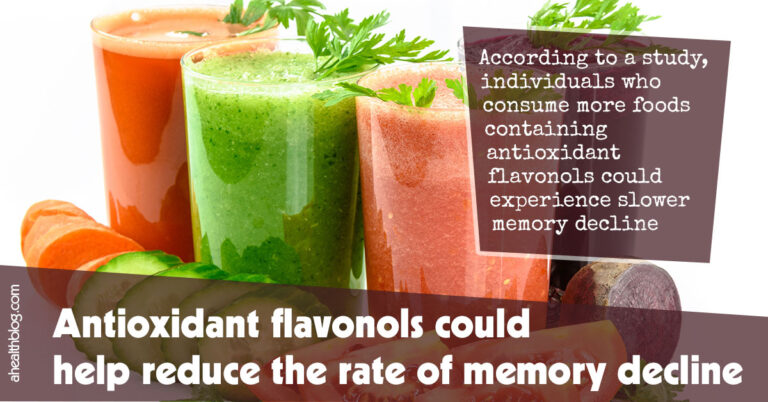Antioxidant Flavonols May Aid in Slowing Memory Decline
Studies suggest that individuals who consume more foods rich in flavonols – found in vegetables and fruit as well as wine and tea – could experience reduced memory decline.
Research participants included 961 individuals without dementia who averaged 81 years old, who completed an annual food consumption questionnaire and memory and cognitive tests that consisted of remembering word lists and numbers in correct order as well as placing them correctly into memory banks.
Education level, physical activity levels and time spent engaging in mental activities such as playing games and reading were reported on. They were monitored for 7 years on average.
Individuals were divided into five equal groups according to their daily flavonol consumption; on average individuals typically consume between 16-20 mg daily while participants had an estimated total daily flavonol intake of 10 mg on average.
The lowest consumption group consumed approximately 5 mg a day while those in the highest group consumed 15 mg on average each day; which equaled approximately one cup of leafy greens.
To assess rates of cognitive decline, this study employed a cognition score which comprised 19 different cognitive tests; scores ranged from 0.5 for people without thinking issues to 0.2 for mildly cognitively impaired and finally to -0.5 in individuals diagnosed with Alzheimer’s.
After accounting for factors that might impact memory decline rate such as smoking, sex and age it was determined that individuals with the highest flavonol consumption experienced a 0.4 units/decade slower rate of cognitive decline compared with individuals who consumed the least flavonols.
